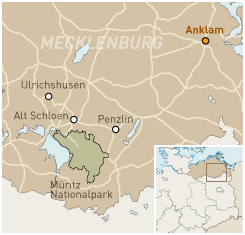The sugar market regulations of the European Union
The significance of the sugar beet for the sugar production has decreased in the last decades. Still, almost 90 per cent of the
sugar consumed by Europeans has been manufactured here. One main reason for this dominance are the prohibitive taxes of the
European Union, which favour the home-grown beet sugar in contrast to the cheaper cane sugar. Since the 19th century, the
prices both of cane and beet sugar have changed dramatically. Nowadays, the EU works to sustain the established sugar industry
while simultaneously meeting the increasing challenge of the world market. The core of these politics is the sugar market
regulation of 1968. The latest reforms and the advancing opening of the European market work to bring down the price level
of sugar in all European member states by about 36 per cent. Up to 2015, the farmers are ensured a compensation of their revenues.
Moreover, the European Union will monitor the rates.
It is for this fact that especially the sugar refineries search for new opportunities as to retain their industry in the long run. One possibility might be the production of bioethanol from sugar beets. Moreover, the sugar refinery in Anklam has taken advantage of this alternative to face the challenge of the sugar market regulations and in order to secure the only remaining sugar refinery in northern Germany.
It is for this fact that especially the sugar refineries search for new opportunities as to retain their industry in the long run. One possibility might be the production of bioethanol from sugar beets. Moreover, the sugar refinery in Anklam has taken advantage of this alternative to face the challenge of the sugar market regulations and in order to secure the only remaining sugar refinery in northern Germany.
Anklam
Overview The mechanisation of agriculture A cultural product: The sugar beet The sugar market regulations of the European Union Master of the sugar: Ingo Kuchenbrandt
